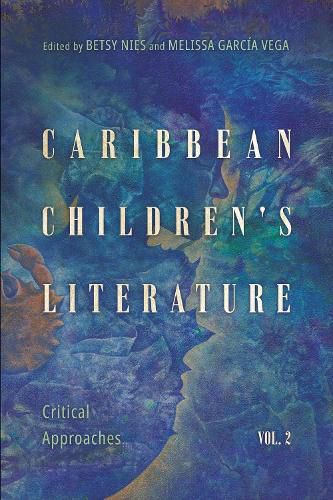Readings Newsletter
Become a Readings Member to make your shopping experience even easier.
Sign in or sign up for free!
You’re not far away from qualifying for FREE standard shipping within Australia
You’ve qualified for FREE standard shipping within Australia
The cart is loading…






This title is printed to order. This book may have been self-published. If so, we cannot guarantee the quality of the content. In the main most books will have gone through the editing process however some may not. We therefore suggest that you be aware of this before ordering this book. If in doubt check either the author or publisher’s details as we are unable to accept any returns unless they are faulty. Please contact us if you have any questions.
Contributions by Jarrel De Matas, Summer Edward, Teofilo Espada-Brignoni, Pauline Franchini, Melissa Garcia Vega, Dannabang Kuwabong, Amanda Eaton McMenamin, Betsy Nies, and Michael Reyes
Caribbean Children's Literature, Volume 2: Critical Approaches offers analyses of the works of writers of the Anglophone Caribbean and its diaspora-or, except for one chapter on Francophone Caribbean children's literature, those who write in English. The volume addresses the four language regions, early children's literature of conquest-in particular, the US colonization of Puerto Rico-and the fine line between children's and adult literature. It explores multiple young adult genres, probing the nuances and difficulties of historical fiction and the anticolonial impulses of contemporary speculative fiction. Additionally, the volume offers an overview of the literature of disaster and recovery, significant for readers living in a region besieged by earthquakes, hurricanes, and flooding.
In this anthology and its companion anthology, international and regional scholars provide coverage of both areas, offering in-depth explorations of picture books, middle-grade, and young adult stories. The volumes examine the literary histories of both children's and young adult literature according to language region, its use (or lack thereof) in schools, and its place in the field of publishing. Taken together, the essays expand our understanding of Caribbean literature for young people.
$9.00 standard shipping within Australia
FREE standard shipping within Australia for orders over $100.00
Express & International shipping calculated at checkout
This title is printed to order. This book may have been self-published. If so, we cannot guarantee the quality of the content. In the main most books will have gone through the editing process however some may not. We therefore suggest that you be aware of this before ordering this book. If in doubt check either the author or publisher’s details as we are unable to accept any returns unless they are faulty. Please contact us if you have any questions.
Contributions by Jarrel De Matas, Summer Edward, Teofilo Espada-Brignoni, Pauline Franchini, Melissa Garcia Vega, Dannabang Kuwabong, Amanda Eaton McMenamin, Betsy Nies, and Michael Reyes
Caribbean Children's Literature, Volume 2: Critical Approaches offers analyses of the works of writers of the Anglophone Caribbean and its diaspora-or, except for one chapter on Francophone Caribbean children's literature, those who write in English. The volume addresses the four language regions, early children's literature of conquest-in particular, the US colonization of Puerto Rico-and the fine line between children's and adult literature. It explores multiple young adult genres, probing the nuances and difficulties of historical fiction and the anticolonial impulses of contemporary speculative fiction. Additionally, the volume offers an overview of the literature of disaster and recovery, significant for readers living in a region besieged by earthquakes, hurricanes, and flooding.
In this anthology and its companion anthology, international and regional scholars provide coverage of both areas, offering in-depth explorations of picture books, middle-grade, and young adult stories. The volumes examine the literary histories of both children's and young adult literature according to language region, its use (or lack thereof) in schools, and its place in the field of publishing. Taken together, the essays expand our understanding of Caribbean literature for young people.